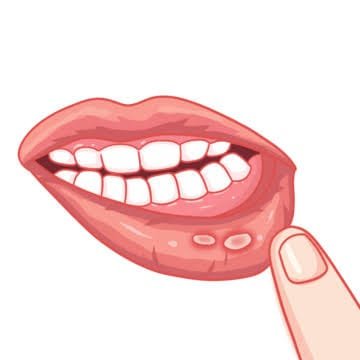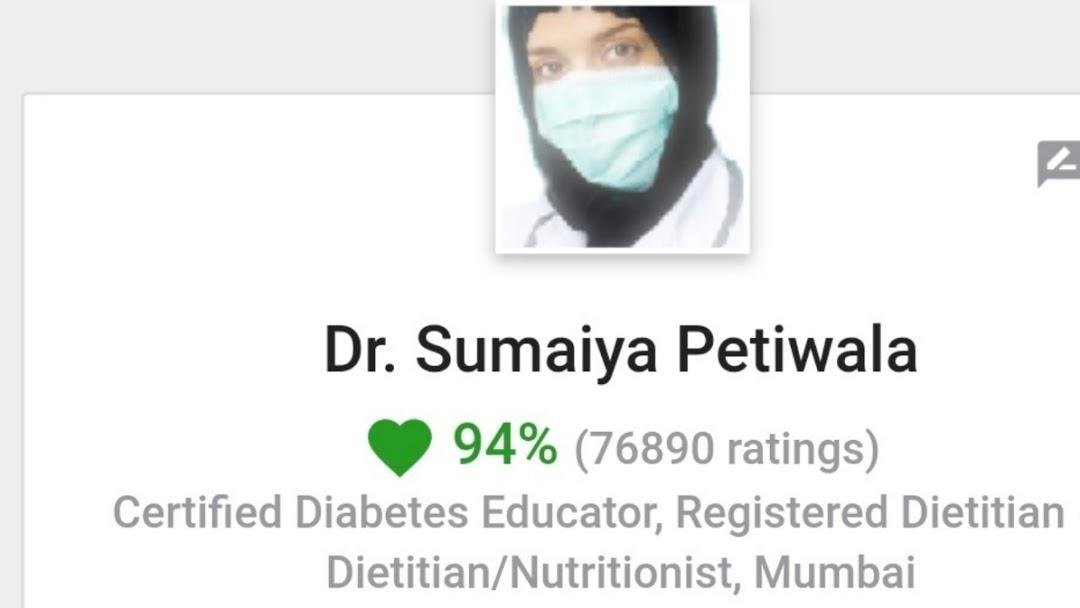Mouth Ulcers (Canker Sores): Causes, Treatment, and Diet
Tired of those pesky mouth ulcers? Discover the causes, treatments, and dietary changes that can help you find relief. Learn how to manage canker sores effectively with practical tips and expert advice from Dr. Sumaiya NutriCare Clinic.
What are Mouth Ulcers?
Mouth ulcers, also known as canker sores or aphthous ulcers, are small, shallow lesions that develop on the soft tissues inside your mouth. This includes the inner cheeks, lips, tongue, gums, and the roof of your mouth (palate). They are typically round or oval with a white or yellowish center and a red, inflamed border. Unlike cold sores (which are caused by the herpes simplex virus and are contagious), canker sores are not contagious.

Causes of Mouth Ulcers
While the exact cause of mouth ulcers isn’t always clear, several factors can contribute to their development:
- Trauma or Injury: Biting your cheek, aggressive brushing, ill-fitting dentures, or dental work can damage the delicate lining of the mouth.
- Oral Infections: Viral infections (like herpes simplex virus, although these typically cause cold sores), bacterial infections, and fungal infections (such as oral thrush) can trigger ulcers.
- Nutritional Deficiencies: Deficiencies in vitamin B12, folate (vitamin B9), iron, and zinc are linked to an increased risk of mouth ulcers. The National Institutes of Health (NIH) emphasizes the crucial role of these nutrients in maintaining healthy oral tissues.
- Hormonal Changes: Fluctuations during menstruation, pregnancy, or menopause can sometimes trigger ulcers.
- Immune System Disorders: Conditions like Behçet’s disease, lupus, and Crohn’s disease can cause recurrent mouth ulcers. These conditions affect the body’s immune response.
- Stress and Emotional Factors: Stress weakens the immune system, making you more susceptible to various health issues, including mouth ulcers. Studies have demonstrated a correlation between stress levels and the frequency of mouth ulcer outbreaks.
- Allergies and Sensitivities: Reactions to foods, oral care products (like toothpaste containing sodium lauryl sulfate), or medications can trigger ulcers in some individuals. Common culprits include acidic foods, cinnamon, and certain preservatives.
- Genetic Predisposition: If your family members frequently experience mouth ulcers, you may be genetically predisposed to developing them as well.
Management of Mouth Ulcers
Treatment for mouth ulcers depends on the severity and underlying cause. Here are some common approaches:
- Topical Medications: Over-the-counter (OTC) or prescription gels and ointments containing corticosteroids (like triamcinolone) or local anesthetics (like benzocaine) can reduce pain and inflammation.
- Multivitamin Supplementation: If a nutritional deficiency is suspected, supplements, particularly vitamin B12, folate, iron, or zinc, may help. A study published in the *Journal of Oral Pathology & Medicine* found that vitamin B12 supplementation could reduce the frequency and duration of mouth ulcers.
- Oral Rinses: Antimicrobial mouthwashes (e.g., chlorhexidine) can help prevent secondary bacterial infections and promote healing.
- Pain Relief: OTC pain relievers like acetaminophen or ibuprofen can help manage discomfort. Avoid applying aspirin directly to the ulcer, as this can cause further irritation.
- Prescription Medications: For severe, persistent, or recurrent ulcers, your doctor might prescribe stronger medications, such as systemic corticosteroids or immunosuppressants.
For personalized guidance and treatment, consider booking a consultation.
Book a ConsultationDietary Recommendations for Mouth Ulcers
While diet alone won’t cure mouth ulcers, making smart food choices can significantly ease symptoms and support the healing process. The key is to choose foods that are gentle on your mouth and provide essential nutrients.
Foods to Eat
- Soft and Easy-to-Chew Foods: These minimize irritation to the ulcers. Examples include:
- Cooked vegetables (e.g., mashed sweet potatoes, steamed carrots)
- Mashed potatoes
- Yogurt (plain, unsweetened)
- Smoothies (avoid acidic fruits)
- Soups (lukewarm, not hot)
- Well-cooked grains (e.g., oatmeal, rice porridge)
- Scrambled eggs
- Nutrient-Dense Foods: Focus on foods rich in vitamins and minerals that support healing, particularly:
| Nutrient | Food Sources |
|---|---|
| Vitamin C | Bell peppers, berries, broccoli, spinach, kiwi |
| Vitamin B12 | Meat, poultry, fish, eggs, dairy products, fortified cereals |
| Folate (B9) | Leafy green vegetables, legumes, fortified grains |
| Iron | Red meat, beans, lentils, spinach, fortified cereals |
| Zinc | Oysters, beef, poultry, nuts, seeds, beans |
Foods to Avoid
- Spicy Foods: Hot sauces, chili peppers, and other spicy ingredients can irritate ulcers and cause pain.
- Acidic Foods: Citrus fruits (oranges, grapefruits, lemons), tomatoes, pineapple, and vinegar-based dressings can worsen ulcer pain.
- Salty Foods: Excessive salt can dehydrate the mouth and irritate the ulcers.
- Rough or Crunchy Foods: Chips, crackers, nuts, and raw vegetables can scrape against the ulcers and delay healing.
- Very Hot or Cold Beverages: Extreme temperatures can cause discomfort.
- Alcohol and Tobacco: These substances can irritate the mouth lining and interfere with healing.
- Sugary Foods and Drinks: Excess sugar can promote inflammation and potentially worsen the condition.
Maintain Adequate Hydration: Drink plenty of water, herbal teas (lukewarm), and diluted fruit juices (avoiding acidic ones). Staying hydrated helps keep the mouth moist and promotes healing.
Maintain Good Oral Hygiene: Brush gently with a soft-bristled toothbrush and mild toothpaste (consider a toothpaste without sodium lauryl sulfate). Rinse with a saltwater solution (1/2 teaspoon salt in 8 ounces of warm water) after meals to help cleanse the mouth and reduce bacteria.
Get personalized dietary advice to help you find relief and prevent future outbreaks.
Get Personalized Dietary AdviceWhen to Seek Professional Help
Consult a healthcare professional or dentist if:
- Your mouth ulcers are unusually large or painful.
- Your ulcers last for more than three weeks.
- You have frequent recurrences of mouth ulcers.
- You have other symptoms, such as fever, rash, or joint pain.
- You have difficulty eating or drinking.
- You suspect an underlying medical condition is contributing to your mouth ulcers.
Conclusion
Mouth ulcers can be a bothersome condition, but understanding the potential causes and adopting appropriate management strategies can significantly improve your comfort and reduce the frequency of outbreaks. By making informed dietary choices, practicing good oral hygiene, and seeking professional help when needed, you can effectively manage mouth ulcers and maintain optimal oral health. For personalized guidance and treatment tailored to your specific needs, consider booking a consultation with Dr. Sumaiya NutriCare Clinic.
Book Your Consultation Today!References
- National Institutes of Health (NIH). Office of Dietary Supplements. Vitamin B12 Fact Sheet for Health Professionals. https://ods.od.nih.gov/factsheets/VitaminB12-HealthProfessional/
- Ship, J. A. (1996). Recurrent aphthous stomatitis. An update. *Oral Surgery, Oral Medicine, Oral Pathology, Oral Radiology, and Endodontology*, *81*(2), 141-147.
- Akintoye, S. O., & Greenberg, M. S. (2014). Recurrent aphthous stomatitis. *Dental Clinics of North America*, *58*(2), 281-297.
- Huling, LB., Bazerbashi, MF., & Kuriya, SP. (2017) Recurrent Aphthous Stomatitis: A Review. *Oral Surgery, Oral Medicine, Oral Pathology and Oral Radiology*. 124(2): e73.



